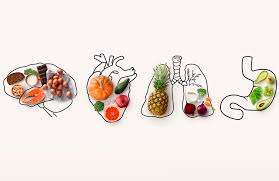Advertisements
Diet plays a crucial role in our overall health and well-being. Often overlooked, choosing the right foods can be key to preventing a number of chronic diseases that affect millions of people around the world. With the incidence of conditions such as diabetes, high blood pressure and heart disease on the rise, understanding the impact of diet on the body is more important than ever.
This comprehensive guide explores how a balanced, nutritious diet can act as a powerful prevention tool. We’ll uncover which foods are allies in the fight against chronic disease and how small changes to your eating habits can have a lasting impact on your health. We’ll also cover the science behind the beneficial properties of certain foods, giving you a clear understanding of how to incorporate them into your daily routine.
Advertisements
Adopting a healthy diet doesn’t have to be complicated. Here, we’ll present practical and accessible tips that can be easily implemented, without the need for a radical change in your diet. In addition, we’ll address common misconceptions about healthy eating, debunking myths and providing information based on scientific evidence.
Throughout this reading, the goal is to empower each person to make more conscious and informed food choices, promoting a longer and healthier life. Understanding the relationship between nutrition and health is not just a trend; it is an essential step towards a healthier and more balanced future.
Advertisements
Discover the transformative power of proper nutrition and how it can be the basis for a fulfilling life free from chronic diseases. 🌿 Prevention starts at the plate, and this guide is the first step on this journey to health and well-being.

The Fundamental Role of Nutrition in Preventing Chronic Diseases
Diet plays a crucial role in our health and well-being, and the choices we make can significantly influence our risk of developing chronic diseases such as diabetes, high blood pressure and heart disease. A balanced, nutrient-rich diet not only provides the energy our bodies need for daily functioning, but also strengthens our immune system, promoting longevity and a better quality of life.
Prioritizing natural, whole foods is one of the most important steps to maintaining good health. Processed foods, rich in refined sugars and trans fats, are often associated with an increase in chronic diseases. In addition, it is essential to pay attention to portions and maintain a balance between food groups, ensuring that the body receives an adequate variety of vitamins and minerals.
We will explore how each food group can contribute to the prevention of chronic diseases, offering practical and accessible information for implementing healthier and more conscious eating habits.
The Power of Whole Grains for Health
Whole grains are an excellent source of fiber, essential vitamins and minerals, which play a key role in preventing chronic diseases. Unlike refined grains, which lose much of their nutrients during processing, whole grains retain their natural layers, ensuring a more complete nutritional intake.
Recommended Articles
Studies show that regular consumption of whole grains is associated with a lower risk of heart disease, type 2 diabetes and some types of cancer. The fiber in these foods helps control blood sugar levels, reduces cholesterol and promotes satiety, aiding in weight control.
To incorporate more whole grains into your diet, consider replacing refined grains with options like brown rice, oats, quinoa, and whole-grain breads. By making these simple substitutions, you’ll be taking a big step toward a healthier, more balanced diet.
Fruits and Vegetables: Allies of Longevity
Fruits and vegetables are rich in vitamins, minerals, and antioxidants that play an essential role in preventing chronic diseases. These foods are known for their anti-inflammatory properties and for strengthening the immune system, protecting the body against various health conditions.
The World Health Organization (WHO) recommends eating at least five servings of fruits and vegetables per day. This practice has been associated with a lower risk of cardiovascular disease, certain types of cancer, and other conditions related to chronic inflammation.
To ensure you’re eating a diet rich in fruits and vegetables, try to include a variety of colors on your plate. The more colorful your plate is, the more diverse the spectrum of nutrients you’ll be consuming. A diet rich in fruits and vegetables not only benefits your physical health, but also contributes to your mental well-being, helping to maintain a balanced mood.
Benefits of Citrus Fruits
Citrus fruits, such as oranges, lemons, and tangerines, are especially beneficial because they are high in vitamin C, a powerful antioxidant that helps strengthen the immune system and fight oxidative stress. Additionally, these fruits contain soluble fiber, which helps control cholesterol levels and improve digestion.
Protein and Muscle Health
Protein is an essential component of building and repairing body tissues, playing a vital role in muscle health and preventing chronic disease. Adequate consumption of high-quality protein is essential for maintaining muscle mass, especially as we age.
There are different sources of protein, both animal and plant-based, each with their own benefits. Animal proteins, such as lean meats, eggs, and dairy products, are rich in essential amino acids, while plant proteins, such as legumes, nuts, and seeds, offer fiber and beneficial phytochemicals.
To maintain a balanced diet, it is important to vary your protein sources, ensuring a diverse supply of nutrients. Choose lean cuts of meat and regularly include plant-based sources in your meals to benefit from the antioxidant and anti-inflammatory properties of these foods.
The Role of Dairy in Bone Health
Dairy products are an important source of calcium, a mineral essential for bone health. Consuming adequate amounts of calcium throughout life can help prevent osteoporosis and other bone density-related conditions.
In addition to calcium, dairy products also provide vitamin D, which is crucial for the efficient absorption of calcium in the body. People who are lactose intolerant or follow a vegan diet can opt for fortified alternatives, such as plant-based milks that are enriched with calcium and vitamin D.
Water: The Basis of Healthy Living
Hydration is often overlooked when it comes to preventing chronic disease, but adequate water intake is vital to the functioning of our bodies. Water plays a crucial role in digestion, nutrient absorption, and elimination of toxins, as well as maintaining a balanced body temperature.
Staying well hydrated helps maintain kidney health and prevent urinary tract infections and kidney stones. The amount of water you need can vary from person to person, but a good rule of thumb is to drink about eight glasses a day.
For those who have trouble drinking plain water, one tip is to add slices of fruit or herbs, such as lemon, cucumber or mint, to make it more flavorful. Proper hydration is a simple yet effective way to promote overall health and well-being.
How to Implement Dietary Changes in a Sustainable Way
Adopting a healthy diet may seem challenging at first, but small changes can have a significant impact in the long run. The key is to make adjustments gradually and create habits that are sustainable over time.
- Plan your meals: Taking the time to plan your meals for the week can help ensure you are eating a variety of nutritious foods.
- Shop consciously: When shopping, opt for fresh, natural foods and avoid the processed food aisles.
- Try new recipes: Introducing new ingredients and recipes can make healthy eating more interesting and enjoyable.
- Listen to your body: Pay attention to hunger and satiety signals, eating consciously and avoiding excesses.
Implementing these tips can help create a solid foundation for a healthy, balanced diet that not only prevents chronic disease but also promotes a happier, more fulfilling lifestyle. 🌱
Conclusion
Discovering the power of food in preventing chronic diseases is essential to achieving a healthy and balanced life. In fact, adopting a nutrient-rich diet full of fruits, vegetables, whole grains and lean proteins can be a game-changer in promoting overall well-being. In addition, by reducing your consumption of ultra-processed foods and foods rich in sugars and saturated fats, you not only reduce your risk of developing diseases such as diabetes, hypertension and obesity, but also boost your daily energy and vitality.
On the other hand, understanding the importance of each food choice can be the first step towards a significant transformation. Therefore, it is crucial to always be informed and seek guidance from health professionals to ensure that your eating habits meet your specific needs. 🍏 Thus, small changes can have big impacts, generating a cascade of benefits that last throughout life.
In short, investing in nutrition as a prevention tool is a promising path for those who want to not only live longer, but live better. Embrace the power of nutrition and begin a journey of lasting health and balance. 🌿




